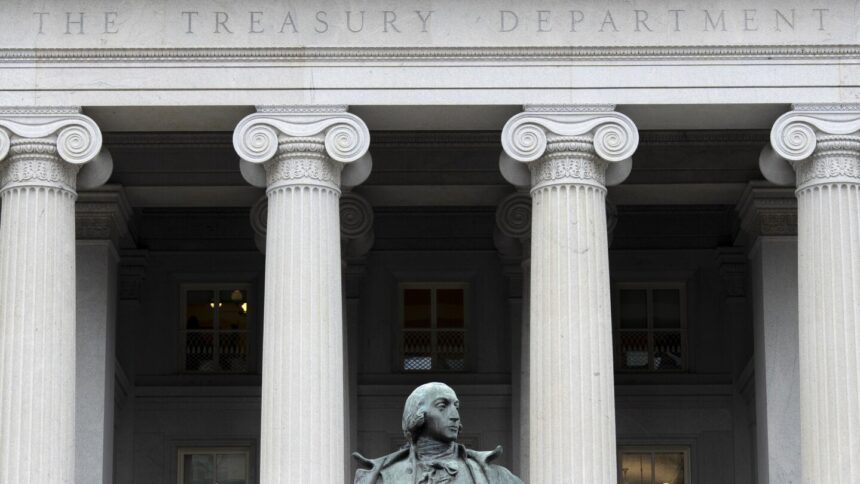In a significant move aimed at curbing Iran’s influence and financing capabilities, the U.S. Treasury Department has issued sanctions against two Iranian nationals and over a dozen associated entities in Hong Kong and the United Arab Emirates. The individuals, identified as Alireza Derakhshan and Arash Estaki Alivand, are accused of facilitating cryptocurrency transfers totaling approximately $100 million from Iranian oil sales, benefiting the Iranian government and its military operations.
According to Treasury officials, Derakhshan and Alivand orchestrated the purchase of substantial amounts of cryptocurrency that resulted from the sale of Iranian oil. They allegedly employed a network of front companies across various countries to facilitate these financial transactions, effectively laundering the funds through what are known as “shadow banking” systems. This network aims to bypass existing sanctions by operating through overseas entities and utilizing cryptocurrency for transactions.
Treasury Under Secretary for Terrorism and Financial Intelligence, John K. Hurley, emphasized the U.S. commitment to disrupting financial channels that support Iran’s military programs and other malign activities in the Middle East and beyond. He stated that the Treasury will continue to target these key financial streams that contribute to Iran’s efforts in weapon development.
The sanctions were authorized using an executive order issued by former President Donald Trump in February, referred to as the National Security Presidential Memorandum 2. This memorandum outlines a strategy to reduce Iran’s oil exports to zero while firmly asserting that the nation should never be permitted to acquire or develop nuclear weapons.
As a result of the sanctions, the designated individuals and firms will face restrictions on access to any property or financial assets located in the United States. Furthermore, U.S. citizens and companies are prohibited from conducting business with the sanctioned parties.
Cryptocurrency has become an increasingly favored method for sanctioned nations, including Iran, to circumvent official financial restrictions. A report from the crypto tracking firm Chainalysis indicated that sanctioned jurisdictions received approximately $15.8 billion in cryptocurrency in 2024 alone, making up about 39% of all illicit cryptocurrency transactions.
This latest round of sanctions coincides with actions taken by France, Britain, and Germany, which recently triggered a “snapback mechanism” that reimposes all United Nations sanctions on Iran due to its non-compliance with the nuclear accord established in 2015. The three European nations have asserted that Iran has deviated from the agreement’s stipulations, prompting these renewed measures.
Earlier discussions aimed at establishing a new nuclear agreement between the U.S. and Iran have stalled, particularly following military escalations, including the 12-day Israeli airstrikes on Iranian nuclear and military targets, alongside U.S. bombardments in June. As tensions rise, the fate of diplomatic negotiations remains uncertain.







